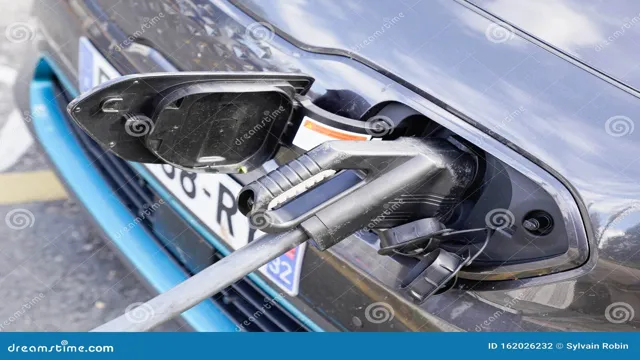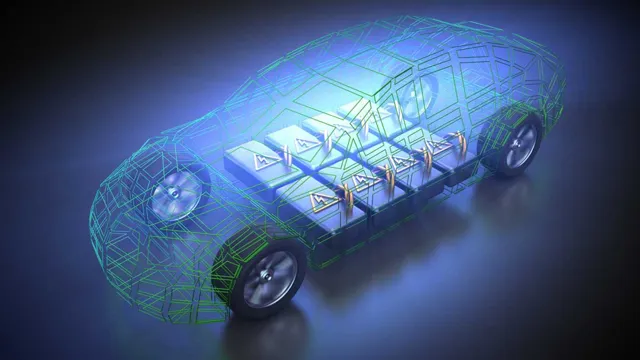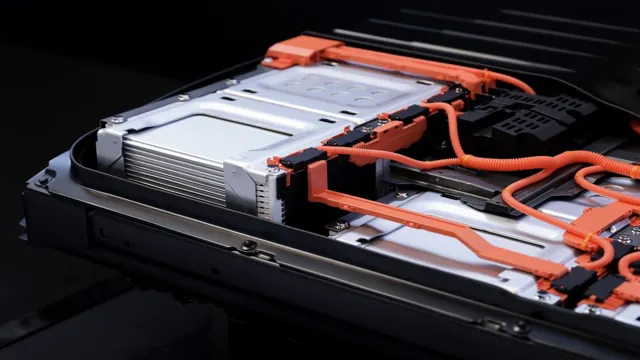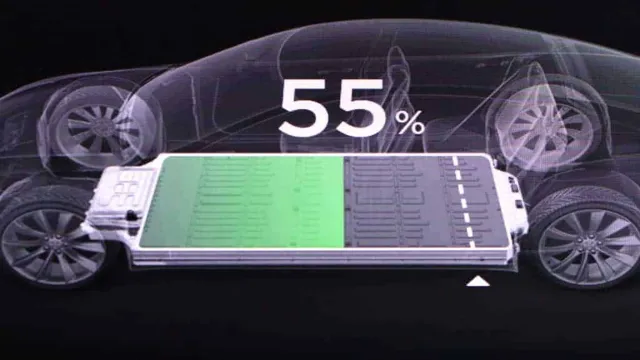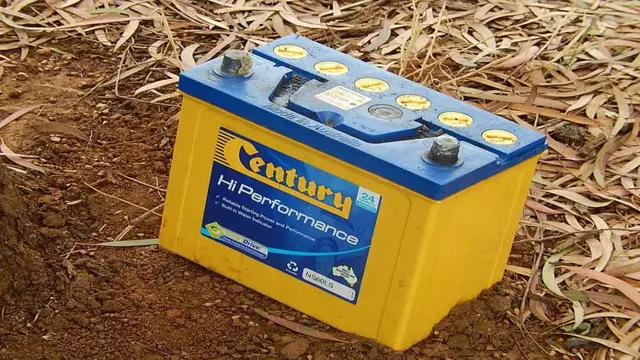Revolutionizing Sustainability: The Impact of Electric Car Batteries on Our Environment
Electric cars have been hailed as the future of personal transportation, as they offer a sustainable and eco-friendly mode of mobility. However, the question remains: what is the environmental impact of electric car batteries? While there is no doubt that electric cars emit significantly fewer greenhouse gases than traditional combustion engine cars, the issue of battery disposal and production cannot be ignored. In this blog, we will explore the impact of electric car batteries on the environment, including their production, disposal, and overall sustainability.
The Benefits of Electric Cars
Electric car batteries have a lower environmental impact than traditional gasoline-powered vehicles. This is because electric cars use rechargeable batteries that are designed to last for a long time, reducing waste in the long run. Furthermore, the batteries used in electric cars are recyclable, meaning their components can be reused and repurposed.
This reduces the amount of waste that ends up in landfills or other environmentally sensitive areas. Additionally, the energy used to charge electric car batteries can come from renewable sources like solar, wind, or hydroelectric power, which reduces the carbon footprint associated with the energy used to power these vehicles. By promoting the use of electric cars with recyclable batteries, we can not only reduce our carbon footprint but also help protect the environment from the harmful effects of pollution and waste.
Reducing Emissions
Electric cars are a sustainable and eco-friendly mode of transportation that are quickly gaining popularity. By switching to an electric car, you can drastically reduce your carbon footprint and decrease harmful emissions that contribute to climate change. Electric vehicles run on electricity rather than fossil fuels, which means they emit fewer greenhouse gases and pollutants into the environment.
Additionally, electric cars are much more efficient than gasoline-powered vehicles, as they convert around 60% of the energy from the grid to power the car, compared to only 20% for traditional combustion engines. This means less wasted energy and lower overall energy consumption. Not only do electric cars benefit the environment, but they also offer cost savings in the long run.
They require less maintenance, have lower fuel costs, and may qualify for federal and state tax credits. Switching to an electric car not only benefits you financially but also contributes to a cleaner, healthier planet.
Decreasing Dependence on Fossil Fuels
Electric cars have gained popularity in recent years due to their numerous benefits, particularly in decreasing dependence on fossil fuels. By switching to electric cars, we can reduce our carbon footprint and contribute to a cleaner environment. Electric cars produce zero emissions and are cost-efficient in the long run as they rely on electricity, which is cheaper than gasoline.
Additionally, electric cars provide a smoother and quieter ride, making them ideal for city driving. Investing in electric cars also supports the development of renewable energy sources, such as wind and solar power, and reduces our reliance on non-renewable fossil fuels. As electric cars continue to evolve and become more affordable, it’s time to consider making the switch and enjoy the benefits of sustainable driving.
Saving Money on Gas
Electric cars are rapidly becoming the go-to option for those looking to save money on gas. Unlike traditional gas-powered vehicles, electric cars run purely on electricity and emit zero emissions. While the initial cost of an electric car may be higher than a gas-powered vehicle, the long-term savings make it worth the investment.
Not only will you save money on gas, but electric cars also require less maintenance and have a longer lifespan. Additionally, some states offer tax incentives and rebates for those who purchase electric cars. Ultimately, switching to an electric car is a wise investment for your wallet and the environment.
So consider making the switch and start reaping the benefits today!
The Life Cycle of Electric Car Batteries
When it comes to electric car batteries in the environment, the life cycle is a crucial factor to consider. These batteries go through several stages, from manufacturing to disposal. The production stage involves extracting raw materials, such as lithium and cobalt, which can have an impact on the environment.
However, experts predict that as the technology advances and becomes more widespread, there will be a shift towards more sustainable battery materials and manufacturing processes. Once the batteries are installed in electric vehicles, they can have a positive impact on the environment by reducing emissions. However, batteries eventually reach their end of life and must be properly disposed of or recycled to prevent harmful chemicals from leaching into the environment.
While some countries have already implemented regulations on battery disposal and recycling, there is still room for improvement in this area. Ensuring that electric car batteries are recycled properly can help us transition to a more sustainable future.
Raw Material Extraction
Raw material extraction is a crucial part of the life cycle of electric car batteries. The process involves sourcing minerals like lithium, cobalt, and nickel, which are essential in the production of batteries. However, the extraction of these minerals has a significant impact on the environment.
The mining processes release toxic chemicals and pollutants that harm ecosystems and communities. Furthermore, mining can lead to deforestation, soil erosion, and loss of biodiversity. The extraction of raw materials also involves significant energy consumption, contributing to the greenhouse gas emissions that contribute to climate change.
Therefore, it is crucial for car manufacturers to work with suppliers who source these materials responsibly to minimize the environmental impact of the entire production process. Additionally, exploring alternative materials and recycling strategies can help reduce the impact of raw material extraction on the environment. By prioritizing environmentally responsible practices in the production of electric car batteries, we can help protect our planet’s natural resources and reduce the impact of climate change.
Battery Production
The production of electric car batteries is a complex process that involves the extraction of raw materials, the assembly of the batteries, and the disposal of used batteries at the end of their life cycle. The lifespan of an electric car battery typically ranges from 8-10 years, after which it needs to be replaced. However, the battery still holds a significant amount of charge and can be reused in other applications like home energy storage.
The process of recycling used batteries helps to reduce the environmental impact and also recovers valuable metals like lithium, cobalt, and nickel, which can be used in the production of new batteries. The production of batteries is a critical factor in the shift towards electric vehicles, and as technology continues to advance, we can expect to see improvements in the energy density, longevity, and sustainability of electric car batteries. With the increasing demand for electric vehicles, it’s essential to build a circular economy that maximizes the life of these batteries and minimizes their impact on the environment.
Use in Electric Cars
Electric car batteries are essential for the operation of electric cars. They are responsible for storing and providing the power needed to propel the vehicle. However, much like any other battery, electric car batteries have a limited lifespan.
Over time, their capacity to store and provide energy will decrease. But what happens when an electric car battery reaches the end of its useful life? Contrary to popular belief, electric car batteries are not just thrown away. Instead, they are either repurposed for other uses, such as home energy storage, or recycled to extract the valuable materials inside.
This is essential since electric car batteries contain a variety of rare and precious metals, such as cobalt, nickel, and lithium, that are becoming increasingly scarce. Efforts are being made to improve the recycling process further and create a more circular economy for electric car batteries. This will help to reduce the environmental impact of manufacturing new batteries and ensure the sustainability of the electric car industry.
End-of-life Disposal and Recycling
When it comes to electric car batteries, there is a lot to consider, including their end-of-life disposal and recycling. However, before we get into that, let’s take a look at the life cycle of these batteries. It starts with the production of the battery cells, which often involves the mining of materials such as lithium, cobalt, and nickel.
Once the cells are manufactured, they are assembled into a battery pack and installed in the electric car. Over time, the battery will gradually lose its capacity to hold a charge and will need to be replaced. When this happens, the old battery can either be recycled or properly disposed of.
Recycling involves breaking down the battery and extracting the valuable materials that can be used again, such as lithium and cobalt. Proper disposal ensures that potentially harmful materials, such as lead and sulfuric acid, do not harm the environment. As demand for electric cars continues to grow, the proper disposal and recycling of these batteries will become increasingly important.
Environmental Concerns of Electric Car Batteries
Electric car batteries are often praised for their environmental benefits, such as reducing carbon emissions and decreasing reliance on fossil fuels. However, it’s important to consider the potential negative impact these batteries can have on the environment. One major concern is the disposal of electric car batteries once they reach the end of their life cycle.
These batteries contain a variety of toxic chemicals and heavy metals that can be harmful to both human health and the environment. Additionally, the production of these batteries requires the extraction and processing of natural resources, which can lead to deforestation, habitat destruction, and pollution. It’s crucial that the environmental impact of electric car batteries is carefully considered and managed to ensure the advancement of this technology doesn’t come at the cost of our planet.
Lithium Mining
Lithium mining has become a crucial aspect of the electric car industry, as lithium-ion batteries are commonly used to power these vehicles. However, concerns have been raised about the environmental impact of mining lithium. The mining process itself can release harmful chemicals into the air and water, affecting the surrounding ecosystem and those who rely on it for their livelihoods.
In addition, the increasing demand for lithium could lead to over-extraction of the resource, making it even more scarce and valuable. To mitigate these concerns, companies are exploring alternative methods of lithium extraction that are more environmentally friendly. For example, some are researching the use of geothermal energy to extract lithium instead of using traditional mining techniques.
Overall, it is important to consider the environmental impact of electric car batteries and work towards sustainable solutions for the future.
Cobalt Mining
Cobalt mining is an essential component of the production of electric car batteries, but it comes with significant environmental concerns. Cobalt mining often takes place in countries with lax environmental regulations, resulting in severe ecological damage. The emissions from diesel-powered machinery used in the extraction and transportation of cobalt also contribute to air pollution, which can lead to respiratory diseases among workers and local communities.
Moreover, the water used in the mining process becomes contaminated with chemicals and heavy metals, posing a serious threat to aquatic life and local agriculture. However, efforts are being made by the industry to mitigate these problems, including the adoption of cleaner technologies, the recycling of batteries, and the implementation of responsible cobalt mining standards. As environmentally conscious consumers, we can play our part in reducing the harm caused by cobalt mining by opting for companies that have adopted responsible mining practices and supporting the recycling and reuse of batteries.
Sustainable Solutions for Electric Car Batteries
As electric cars become increasingly popular, concerns about the environmental impact of their batteries have become more prevalent. However, sustainable solutions are being developed to address this issue. For example, some manufacturers are exploring the use of recycled or repurposed materials in their batteries.
Additionally, researchers are exploring the use of more environmentally-friendly materials, such as sodium-ion batteries which are easier to recycle and are less harmful to the environment. Another approach being studied is the development of batteries that can be easily disassembled and can have their components reused or recycled for other purposes. These sustainable solutions aim to reduce the negative impact of electric car batteries on the environment while still providing the benefits of electric vehicles.
By implementing these methods, we can continue to progress towards a more sustainable future.
Conclusion
In conclusion, electric car batteries may seem like a small component of the larger environmental picture, but their impact shouldn’t be overlooked. By utilizing cleaner energy sources and reducing the demand for fossil fuels, electric cars and their batteries are playing a vital role in reducing carbon emissions and fighting climate change. As the technology continues to advance and become more efficient, we can look forward to a future where electric car batteries not only benefit the environment, but also provide reliable and convenient transportation for everyone.
So, charge up your batteries and let’s ride into a brighter, cleaner tomorrow!”
FAQs
How do electric car batteries affect the environment?
Electric car batteries can have both positive and negative impacts on the environment. On one hand, they reduce greenhouse gas emissions and air pollution compared to traditional gasoline-powered cars. However, the production and disposal of these batteries can also contribute to environmental damage.
Can electric car batteries be recycled?
Yes, electric car batteries can be recycled. The recycling process involves recovering valuable metals such as lithium, cobalt, and nickel, which can be used to manufacture new batteries. This not only reduces the environmental impact of battery disposal but also helps conserve natural resources.
What are some challenges associated with electric car battery recycling?
One of the main challenges of electric car battery recycling is the lack of infrastructure and technological capabilities to handle the high volume of batteries. Additionally, some battery chemistries make recycling difficult, and there are concerns about the safety of the process due to the potential for fires or leaks.
How can consumers dispose of electric car batteries responsibly?
Consumers should first check with their local government or waste management companies to find out how they can safely dispose of their electric car batteries. It’s important to never dispose of batteries in regular trash bins or landfill as they can release hazardous chemicals into the environment. Recycling programs or return-to-manufacturer options are typically available for safe battery disposal.

